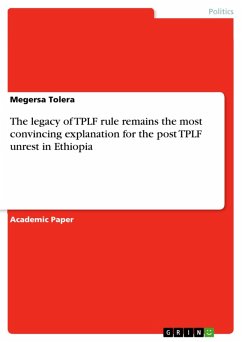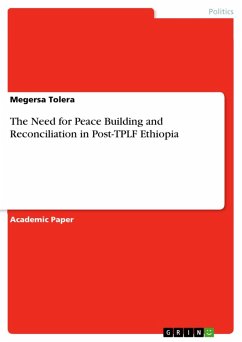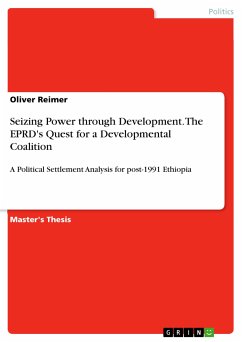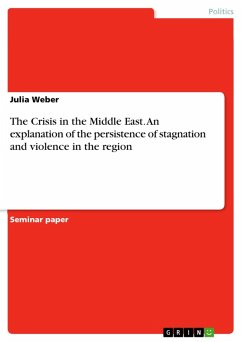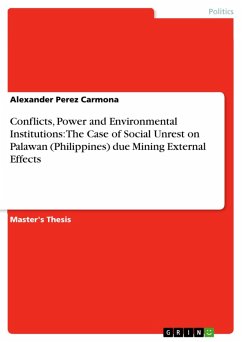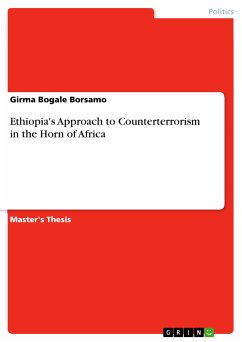Academic Paper from the year 2020 in the subject Politics - International Politics - Topic: Peace and Conflict Studies, Security, Haramaya University, language: English, abstract: To an extent, the tragedy of South Sudan since independence is a consequence of colonialism. Under the colonial state, South Sudanese were subjects divided into chiefdoms with a fusion of legislative, executive, and judicial powers conferred from the colonial state to the ethnic fiefdoms. The colonial administration used a form of ethnic federalism, aligning cultural and political boundaries, to manage native populations, not dissimilar to the approaches of Ethiopia and Nigeria today. Systems of ethnic federalism align identity and territorial divides creating options for more local autonomy while still leaving room for manoeuvring by the federal government.
Dieser Download kann aus rechtlichen Gründen nur mit Rechnungsadresse in A, B, BG, CY, CZ, D, DK, EW, E, FIN, F, GR, HR, H, IRL, I, LT, L, LR, M, NL, PL, P, R, S, SLO, SK ausgeliefert werden.

